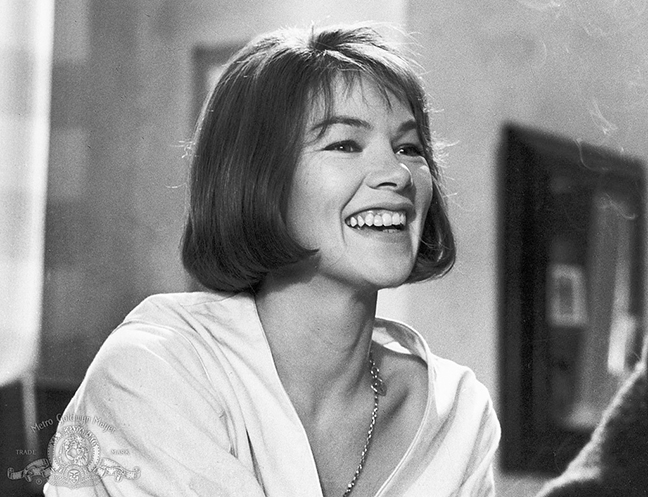Welcome!

Mr. Movie: Glenda Jackson
What a life! The incredible Glenda Jackson passed on in June. She was 87.
She won two Oscars. She served in the British House of Commons several times and was a fierce advocate for women’s rights and other Labour causes. She came up hard and she worked at a pharmacy until she impressed the directors enough to get into the prestigious Royal Academy of Dramatic Arts at 18. From there she went straight up.
She was first widely noticed when she played Charlotte Corday in Marat/Sade (1967) with heavyweights Ian Richardson and Patrick Magee. Two years later, she stunned the cinema world, winning the Best Actress Oscar as Gudrun, in Women In Love, Ken Russell’s ground-breaking film adapted from D.H. Lawrence’s novel of the same name. Oliver Reed and Alan Bates provide plenty of fireworks and Glenda is just outstanding.
Sunday Bloody Sunday (1971) was a British film directed by John Schlesinger and one of the first movies showing homosexual men in a favorable light. Jackson plays Alex Greville, the female side of an unlikely romantic triangle. She was nominated for another Oscar but this time lost to Jane Fonda for Klute.
Also in 1971, the very busy Jackson had two turns as Queen Elizabeth I, first in a quite good made-for-TV drama, and also in Mary, Queen of Scots. Vanessa Redgrave played Mary, tried for treason and beheaded, refusing to apologize to Elizabeth for her part in an assassination plot.
Another Oscar for Best Actress came Jackson’s way for her performance in A Touch of Class (1973). As a British divorcee having an affair with a married man (George Segal), she is just astonishingly good. Her character is somewhat older than his, and she manages to make that unimportant.
In 1978's Stevie, Glenda Jackson shines as British poet Stevie Smith, like many poets, unheralded during her lifetime. Her life at her aunt’s home which she shared is the centerpost of the film. “I was drowning, not waving” is one of the poet’s best lines.
She can also be seen to good advantage in Hopscotch (1980) and Turtle Diary (1985). Keep in mind that all those Oscar nominations were for British movies!
In the 1990s and beyond, Glenda Jackson turned her career to politics. She was elected to the House of Commons several times, was in the Cabinet occasionally and was one of Labour’s shining stars.
All of the movies in this article are available on DVD. All are for grown-ups.
